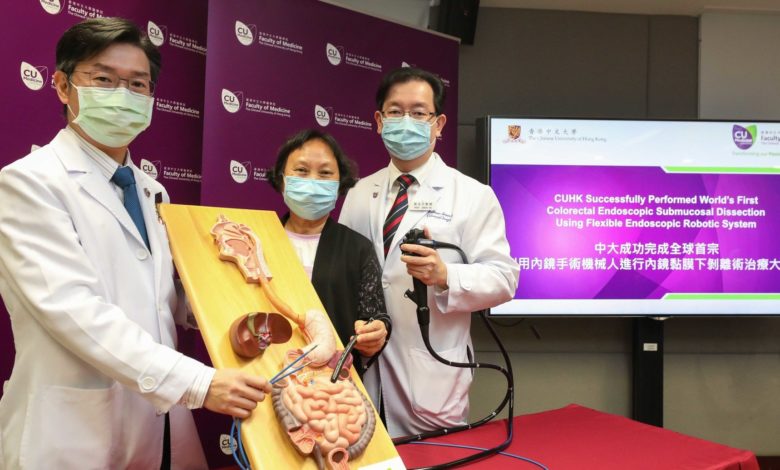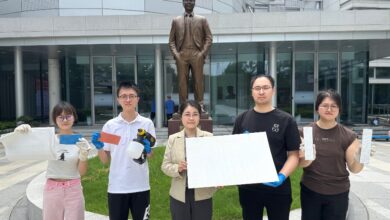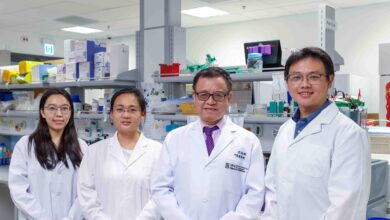CUHK Successfully Performed World’s First Colorectal Endoscopic Submucosal Dissection Using Flexible Endoscopic Robotic System

Compared to Minimally Invasive Surgery, Endoscopic Submucosal Dissection (ESD) represents an advanced less-invasive endoscopic treatment for early gastrointestinal cancer. ESD has significant advantages as an organ preservation surgical treatment, but it is technically challenging with substantial risk of perforation and bleeding. The Faculty of Medicine at The Chinese University of Hong Kong (CU Medicine) has been collaborating with researchers from Singapore since 2010 to develop a flexible endoscopic robotic system. This novel system was specifically designed to enhance the safety and efficacy of ESD for the treatment of gastrointestinal cancer. Using the first prototype flexible endoscopic robot, our team at CU Medicine had successfully performed ESD for treatment of early gastric cancer in 2011. The flexible endoscopic robot is now further redesigned and developed for performing ESD in the colorectum– namely The EndoMaster EASE® (Endoluminal Access Surgical Efficacy) System. CU Medicine led the world’s first clinical trial on robotic colorectal ESD using the EndoMaster EASE® System which commenced in May this year and has demonstrated satisfactory outcomes thus far. Researchers believe this innovative technology will enhance advanced endoscopic resection and benefit more patients with early colorectal cancer who will require ESD treatment.
Read full story at CU Medicine
Image by Chinese University of Hong Kong (CUHK)




